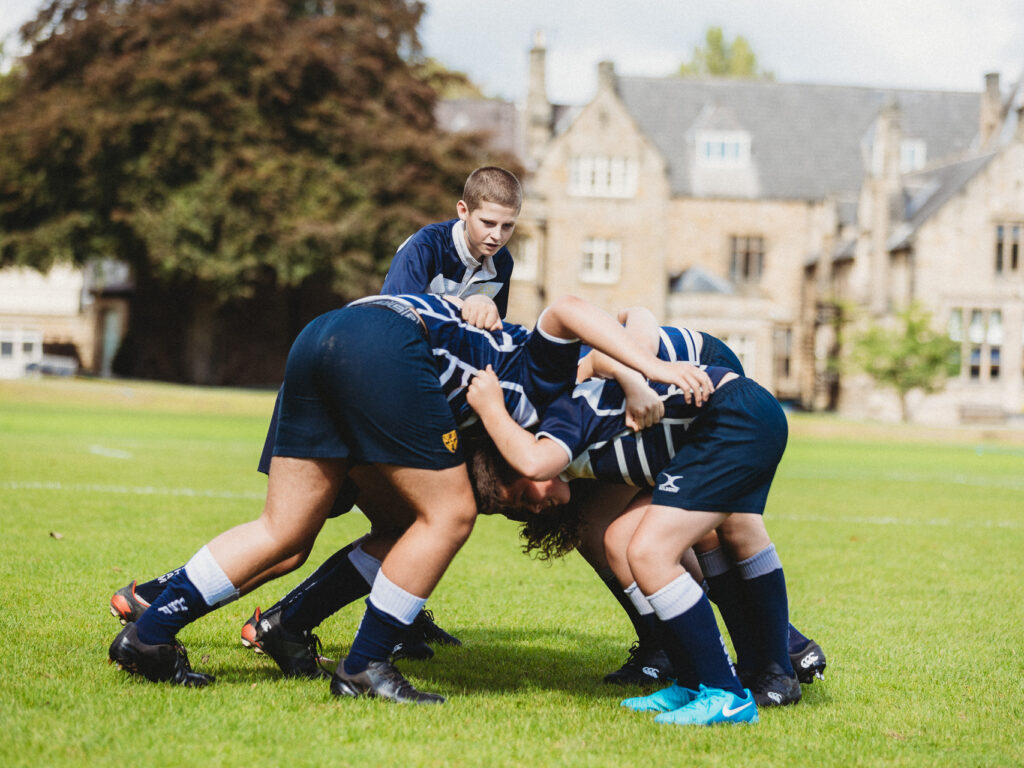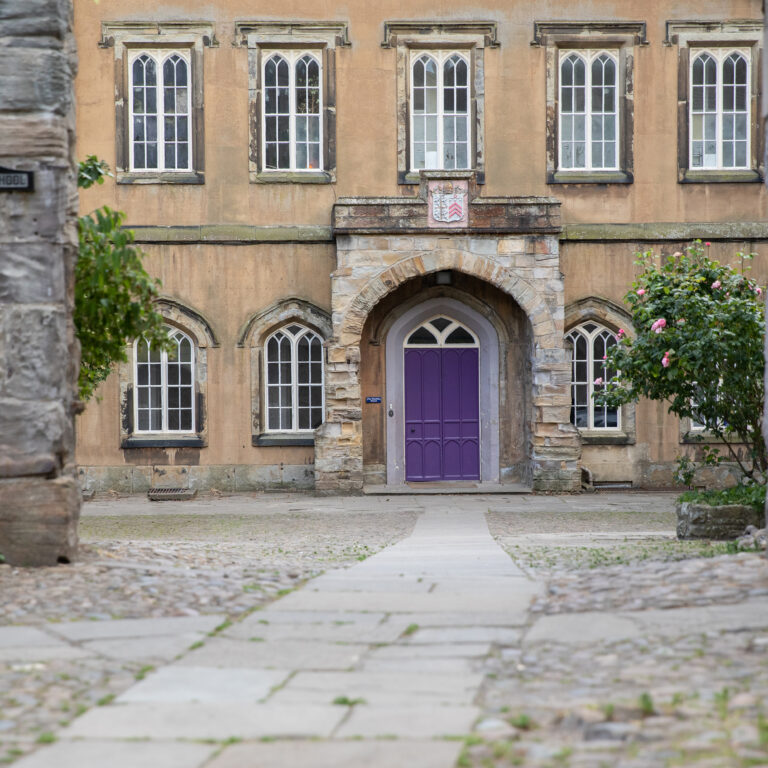
In a world that often feels uncertain and fast-moving, one quality stands out as vital for our young people: resilience. At Durham Cathedral Schools Foundation, we believe resilience is not just about coping with challenges but about growing through them, learning from experience, adapting to change, and developing the confidence to persevere. Over the coming weeks, ‘resilience’ will be the central focus of our Life & Wellbeing Education (LWE) sessions in tutor time, forming part of our wider G.R.O.W.T.H series on personal development, professional development and wellbeing.
What is Resilience and Why Does It Matter?
Resilience is often described as the ability to “bounce back” after setbacks. But for our students, it is also about the ability to bounce forward, to reflect, recover, and emerge stronger from challenges. It is the skill that allows a student to keep trying after a disappointing test result, to persevere in training when sporting performance dips, or to rebuild confidence after a friendship difficulty.
Developing resilience is crucial in this moment in time. Young people today are growing up in a world that is both more connected and more complex than ever before. The influence of social media can bring enormous pressure: to appear perfect, to achieve constantly, and to compare themselves to others. It is easy for self-worth to become tangled with likes, followers, or online approval. In contrast, resilience helps young people stay grounded. It enables them to manage disappointment, regulate their emotions, and take a longer-term view of success, understanding that growth often comes through struggle, not instant gratification.
At DCSF, our approach to resilience is holistic. We know that it can be found, taught, and strengthened in many areas of school life, not just in lessons but on the sports field, in the rehearsal room, and through community engagement. Every experience, whether academic or extracurricular, offers an opportunity for students to learn how to adapt, reflect, and grow.
Resilience in the School Day
Resilience is woven into daily life at the Foundation. In the classroom, it might look like a student tackling a challenging Maths problem, experimenting with new ideas in Art, or managing feedback on a piece of English coursework. Teachers encourage students to embrace the process of learning, to see mistakes as stepping stones, not failures. Through this approach, we help build what psychologists call a growth mindset: the belief that ability and intelligence can develop through effort, practice, and perseverance.
In sport, resilience is visible every day. From early morning rowing training to competitive matches on the pitch, our pupils learn the importance of perseverance, teamwork, and composure under pressure. A race may not always go to plan, but the determination to train harder, reflect on performance, and support teammates fosters both physical and mental strength. Sport teaches the kind of resilience that lasts a lifetime, the ability to keep striving, stay positive, and maintain perspective when results don’t immediately go one’s way.
Outside the classroom, resilience continues to grow through music, drama, and the arts. A musician learning a challenging piece or a performer facing stage nerves is developing discipline and emotional regulation. Participation in ensembles and productions teaches students to work collaboratively, to trust others, and to respond to setbacks constructively, whether that’s a missed note or a forgotten line.
Equally, our outdoor and community activities nurture resilience in a different way. Whether litter picking, Duke of Edinburgh volunteering, or taking part in fundraising within Houses, students encounter the satisfaction that comes from overcoming discomfort, embracing challenge, and contributing to something greater than themselves. These moments build empathy and remind students that resilience is not only about personal strength, but also about connection, compassion, and purpose.
Resilience in Context: Why Now?
It’s hard to overstate how important resilience is for young people today. The digital world offers enormous opportunities for connection and creativity, but it also brings pressures that previous generations did not face. The constant presence of social media can amplify anxiety, perfectionism, and self-comparison. Resilience acts as a buffer, helping students navigate online experiences with perspective, manage emotions, and maintain self-worth that is rooted in who they are, not how they appear.
In education too, resilience underpins success. Exams, assessments, and transitions can be challenging, but students who have developed coping strategies, emotional balance, and persistence are better equipped to thrive. They can see feedback as guidance, not criticism, and approach difficulties as temporary, not defining.
At DCSF, we see resilience as a shared language, something that links our values as a community. It’s what helps our pupils face the future with courage and compassion. Whether in academic work, co-curricular life, or pastoral development, resilience gives students the tools to adapt, the courage to keep learning, and the confidence to care.
The G.R.O.W.T.H Series: 7 Weeks of Building Resilience
As part of our whole-school Life & Wellbeing Education programme, our tutors each term introduce a new theme under the banner of our G.R.O.W.T.H. series (Goals, Resilience, Others, Words, Time and Health). This half term, we will be guiding students through seven connected sessions that explore resilience from different angles. linking resilience to the wider skills and mindsets that underpin wellbeing and personal development.
- Understanding Resilience – Students begin by defining what resilience means to them. Through discussion and reflection, they explore where they’ve already shown resilience and how it helps them in school and beyond.
- Resilience and Anti-Bullying – Timed to coincide with national Anti-Bullying Week, this session helps students understand how resilience supports empathy, confidence, and standing up for themselves and others. Pupils will take part in a short survey and explore positive ways to respond to unkindness or exclusion.
- Managing Stress and Emotions – This week focuses on emotional regulation and coping strategies. Students learn practical ways to manage pressure from schoolwork, exams, and social life, building emotional awareness and self-care habits that will serve them well throughout life.
- Building Healthy Support Networks – Recognising that resilience grows in relationships, students explore how friends, teachers, and families contribute to their wellbeing. They consider what it means to give and receive support and how community strengthens individual resilience.
- Problem-Solving and Adaptability – Real-world challenges rarely have easy answers. This session focuses on decision-making, flexibility, and creative thinking, helping students see obstacles as opportunities to learn new approaches.
- Purpose, Values, and Motivation – Students reflect on what drives them, exploring how personal values and long-term goals provide direction and strength during difficult times. Connecting resilience to purpose helps young people understand why they keep going, even when things are hard.
- Reflection and Action – The final week encourages students to consolidate their learning by creating a personal action plan for their Life & Wellbeing Education portfolios. This brings together personal insights, strategies, and goals to support future challenges with confidence.
These sessions are designed to be interactive and reflective, combining discussion, practical tasks, and self-assessment. They not only develop emotional literacy and confidence but also feed directly into students’ LWE Tutor Portfolios, which record their personal and professional growth, and learning across wellbeing themes throughout the year.
Looking Ahead
As our G.R.O.W.T.H. series continues, resilience will remain a thread running through everything we do, in lessons, on the sports field, and in everyday interactions. By explicitly teaching, modelling, and celebrating resilience, Durham Cathedral Schools Foundation aims to equip every student not just to succeed, but to flourish.
Parents and families play a vital role in this too. Conversations at home about perseverance, coping with disappointment, and managing pressure reinforce the messages students hear in school. Together, we can help young people understand that resilience is not about being unshakable, it’s about being adaptable, reflective, and hopeful, even when life is uncertain.

